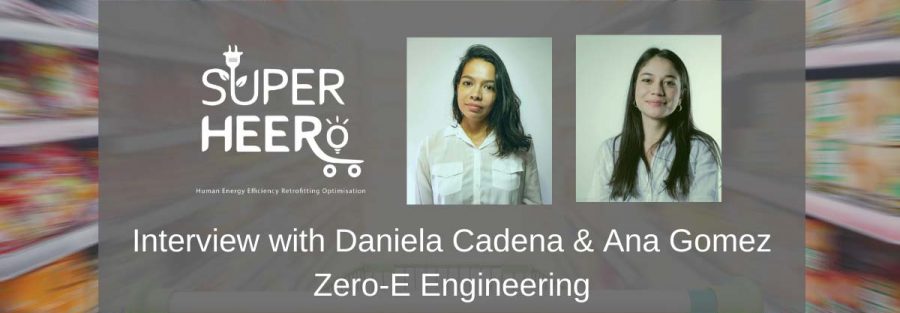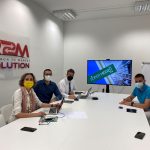Daniela Cadena, Building Information Modeling (BIM) Architect for Zero-E Engineering, and Ana Gomez, Research Engineer for Zero-E Engineering, speak on this interview about the main role of Zero-E Engineering in the SUPER-HEERO project, their expectations and the work they will carry out on energy assessment, socio-economic and circular economy analysis of the models developed in SUPER-HEERO and its application at the Pilot Sites.
Q. Daniela, what are your expectations from the SUPER-HEERO project?
A. I hope to achieve three main outcomes:
- To involve real and committed stakeholders during the project development, with them we will have the capability to accomplish what I think it’s our grates goal, which is the reduction of the Supermarkets energy consumption by 40%.
- To really impact on the way customers, look at supermarkets, by informing and involving them in the actions and plans that super markets are developing to achieve and reduce their impact on the environment.
- To deliver a project in which all the parties involved can create a network of similar goals, and to deliver real replicable financing schemes where all of them participate con achieve their individual and collective goals.
Q. Ana, could you describe the main role of ZERO-E-ENGINEERING in SUPER-HEERO?
A. Our main role is as work package leaders for WP3, task 3.4 leaders and Tasks 4.3 and 4.4 leader. This leadership represent a great opportunity for Zero-E to upstand and show our knowledge and expertise in different fields, from Web platform creation to Circular economy and financial assessment, where our team has great experience working in pasts and ongoing EU projects.
Q. Daniela, can you talk a bit about the work you are planning to develop on energy assessment, socio-economic and circular economy analysis, of the models developed in SUPER-HEERO and its application at the Pilot Sites?
A. We will develop an energy assessment through an energy and exergy analysis (exoergonomic methodology) that will evaluate all the resources, inputs and outputs of the SUPER-HEERO systems, also the energy balances, exergy balances, costs, etc. which will allow to optimize energy use in the pilot sites.
Likewise, we will carry out a socio-economic and circular analysis through in-depth research of each equipment and process involved in the project, where the recyclability of the equipment can be evaluated to define the best route that allows us to close the life cycle of the project. The social assessments will be developed through surveys, interviews, and research, where it will be possible to quantify the social impact of the project on all stakeholders.
Q. Daniela, what do you think will be the main outcomes of the SUPER-HEERO project?
A. This project will give a real overview of the action’s supermarkets and ESCOs can take to improve how they connect with each other; it will also prove that customers can support and impulse the change and be aware of the process that takes for the goods they purchase to be available for them.
In the other hand, technical outcomes are that the project can achieve the goal of saving 40% of energy consumption to prove that all the measures that we´re developing and are going to be implemented really work and can be replicated in other countries and sectors.



